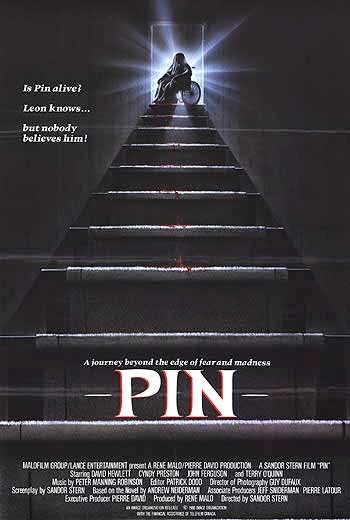
I would not have predicted success for “The Beaver” for two reasons: the presence of Mel Gibson and the presence of a hand puppet used as a character's way to communicate with his estranged family--plus it's Mel Gibson's character using the puppet. Director Jodie Foster may not have thought this film would generate huge box office success. She would have been correct. At the same time, however, the fact that she made this film, with the plot device of a beaver puppet and using Mel Gibson in the lead role took a lot of guts. I think the following goes without saying, but I feel compelled to say it anyway. In this posting, you will read a review of Mel Gibson as an actor in this film. This is not a review of the man. The positive things I will say about his performance do not equal an endorsement of the things we have heard about him in the media. Let's just stick to the movie.
“The Beaver” weaves an interesting tale about Walter Black, a man who, through various circumstances, becomes very depressed, so much so that his wife, played by Jodie Foster, tells him to leave permanently as she and their oldest son can no longer take the burden of Walter's depression. In one of the boxes of belongings he takes with him from his house, Walter finds a beaver hand puppet which he throws into a dumpster, but seconds later, decides to keep. Walter goes to a motel and after a night of heavy drinking and a tv set falling on his head, he is awakened by the beaver puppet he decided to keep. That is, Walter begins using the hand puppet, through his own voice, though mimicking a Cockney accent. Yes, the puppet’s voice ends up sounding like Michael Caine. Let’s move on.
Eventually, Walter returns to his home where his wife and two sons live and speaks to his youngest son and his wife through use of the puppet. Walter is too afraid/depressed to speak as himself. He uses the puppet as a way to speak to his family, yet not “be himself.” This is an interesting notion to explore in a film, however, little things detract from the film’s ability to carry through with it’s message without stopping to think about how absurd those little things are. For instance, one subplot in the film involves Walter’s oldest son, Porter (played by Anton Yelchin from “Star Trek” and the new “Fright Night”), being asked to write his high school’s valedictorian’s graduation speech. Porter is known around school for writing very good papers for classmates, so valedictorian Norah, (played by Jennifer Lawrence who was excellent in “Winter’s Bone”) asks him to write her speech. This seems logical, however, we learn that, while in junior high, Norah was a street artist, a graffiti tagger, for which she got into trouble and was expelled from school. I did not believe for a second that Lawrence’s character was ever a rebellious graffiti artist in junior high.
Another aspect of the film we are expected to easily believe is not the fact that Walter goes back to his job as CEO of a toy company, beaver on arm, but the fact that the nation, within, a few weeks, is so bowled over the toy concept Walter comes up with—some block of wood that is supposed to be carved into the shape of a beaver—and it comes with a beaver puppet. What’s even more illogical is that, as in many films from the 80’s and early 90’s, this new wood toy becomes so popular and Walter becomes so famous that his picture is on several national magazines, all conveniently displayed on a single magazine rack. This feels like something, like I alluded to, you might have seen in a 20-25 year old film to show how popular a particular person has become. We even see Walter on the NPR program,“Fresh Air with Terry Gross.” Fifteen to twenty years ago, the film may placed him on “Larry King Live.”
Again, as an idea for a film, “The Beaver” held my interest. All of the performances are very good, especially Mel Gibson, Anton Yelchin, and Jennifer Lawrence. All three have proven themselves as fine actors in the past. The fact that Mel Gibson is in the film and that the film is about a man speaking through a beaver puppet could easily have been distracting, however, I did not let those facts distract me. I believe that Jodie Foster intended to make a profound family drama, however, she inserts too many film elements left over from the 80’s and early 90’s which briefly took my attention away from the action of the film. Mass media has changed quite a bit in the last twenty years. It's as if Foster wants to show that Walter and his company have rebounded to become relevant again, however, the way she presents this rediscovered fame is not in line with current media. There is not internet presence of Walter's fame or that of his puppet. Showing a magazine rack with the subject of said fame's picture on the cover is an outdated way of showing that someone has skyrocketed to popularity. Wow, I did go on about that, didn't I?
That is just a little thing. There are a few plot points which are just too convenient and events in the film that occur and are smoothed over in a very short amount of time. If you see this film, there is one event in particular that is major, but, after it happens, it is as if the screenplay is saying, "Well, that's just a minor thing. We''ll just go on to the next conflict." Despite several of these distracting plot points, the film is successful in delivering it's message. It did not feel preachy or manipulative, which I always appreciate. I give "The Beaver" 3 out of 4 teeth. Dam it! I liked it!


















































































